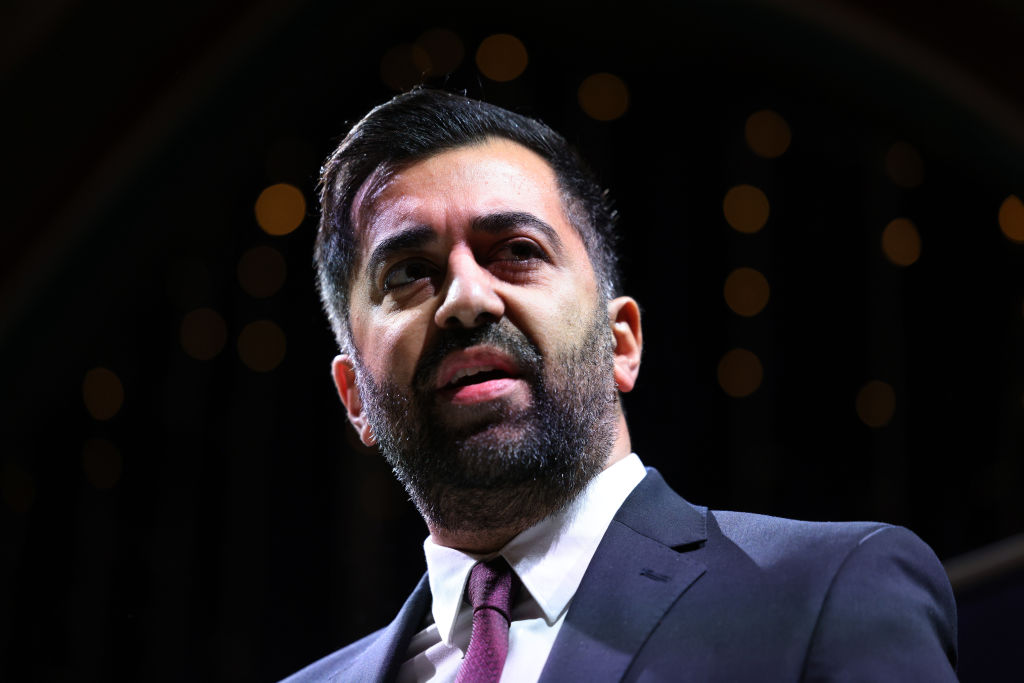After two and a half years in government together, Humza Yousaf has terminated the SNP’s governing pact with the Scottish Greens. The decision was rubber stamped at a hastily arranged meeting of the Scottish cabinet on Thursday morning. It preempts a vote by rank-and-file Green members on whether to walk away from Yousaf’s government after he ditched a key climate target. It means their party’s co-leaders, Patrick Harvie and Lorna Slater, will lose their ministerial posts and the SNP will lose its overall majority in the Scottish parliament.
The Bute House Agreement, which the Greens originally signed with Nicola Sturgeon, has been a source of consternation inside the SNP right from the start. It brought into government a party with a raft of extremist views. The Scottish Greens have adopted the most hardline iteration of gender ideology, with their equalities spokesperson Maggie Chapman telling an interviewer in 2023 that it was worth ‘exploring’ whether eight-year-olds should be allowed to change their gender. In 2015, the party called for Hamas to be removed from the list of proscribed terrorist organisations.
The Greens quickly became a thorn in the side of the pro-business and pro-development wings of the SNP. Their influence was credited with breaking a longstanding Nationalist manifesto pledge to fully upgrade the A9, a lifeline road in the Highlands but one which has developed a reputation as an accident blackspot. This earned them the enmity of veteran SNP right-winger Fergus Ewing, who has made savaging his party’s coalition partners his stock-in-trade. Ewing was briefly suspended from the SNP for refusing to back Slater in a no-confidence vote at Holyrood. Said vote was in response to the Green minister’s widely panned handling of the deposit return scheme, a bottle recycling venture that alienated small business and drew opposition from the UK government. Another sop to the Greens, a planned ban on fishing in 10 per cent of Scotland’s coastal waters, was dropped following outcry from fishing communities.
By far the Greens’ most controversial contribution to government was the Gender Recognition Reform bill, behind which they were a major driving force. The legislation allowed anyone 16 or older to change their legal sex without the involvement of medical professionals and on the basis of their self-declared gender identity. The legislation was forced through the Scottish parliament in a series of late-night sittings but was blocked by Scottish Secretary Alister Jack after legal advice warned the Bill would change how the law operated Britain-wide. The Scottish government took Jack to court to overturn his decision but lost. This and other fringe agendas — plans to criminalise parents for trying to stop their children changing gender are moving ahead at pace — have prompted splits within the SNP and the wider independence movement.
In consciously uncoupling from the Greens, Yousaf might be said to have made the first canny decision of his 13-month premiership. Shorn of Harvie, Slater and their marginal priorities, Yousaf’s SNP can edge back to the mainstream and try to regain those voters whom the polls show have abandoned the Nationalists lately. Returning the government to minority status may also discourage the rebellious sentiments seen on the backbenches in the last year or so. A newfound sense of embattlement, with the government at risk of losing divisions, could cause the parliamentary party to draw together. Equally, however, Yousaf will have to adapt his policy agenda and governing style. He will no longer have the parliamentary cover to ignore his backbenchers or impose unpopular legislation.
While the rescinding of the Bute House Agreement gives Yousaf a chance at a fresh start, it leaves the Scottish Greens with almost nothing. They exit government looking very much like latter-day Lib Dems, having compromised on their most cherished beliefs in exchange for power and little else. They backed the SNP in nuking one of Scotland’s ‘world leading’ climate targets. They didn’t get their deposit return scheme. They didn’t get their fishing ban. They didn’t get their gender law. They didn’t get much of anything besides shiny ministerial titles. Patrick Harvie is left looking like a carbon-neutral Nick Clegg, an outsider so desperate to be an insider that he chucked away his party’s principles along with its credibility.








Comments